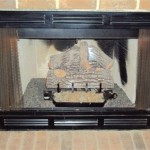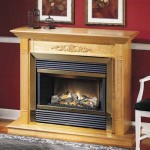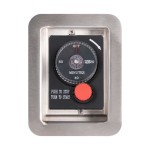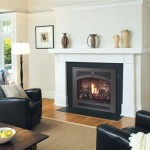Fireplace Gas Starter: Igniting Comfort and Convenience
A fireplace gas starter is a crucial component for igniting the flames in your gas fireplace. It provides a reliable and safe method to start a fire, eliminating the need for matches, lighters, or manual ignition methods. These starters are designed to be user-friendly and efficient, ensuring a seamless and enjoyable experience when using your fireplace.
Fireplace gas starters come in various forms, with the most common types being electronic ignition systems and piezoelectric igniters. Each type has its own advantages and disadvantages, making it essential for homeowners to understand their differences and choose the most suitable option for their needs.
Electronic Ignition Systems
Electronic ignition systems are a modern and convenient option for gas fireplace starters. They typically employ spark ignition, where a high-voltage electric spark ignites the gas. These systems often feature a remote control or wall switch for easy operation, allowing users to start the fireplace from a distance. Electronic ignition systems are known for their reliability and responsiveness, providing a quick and efficient flame initiation. They are also generally easier to maintain compared to piezoelectric igniters.
However, electronic ignition systems require a power source, usually an electrical outlet or a battery pack. If a power outage occurs, the system may not function, making it essential to have a backup ignition method. In addition, electronic systems can be more susceptible to malfunctioning due to their complex circuitry, although advancements in technology have significantly reduced the likelihood of failure.
Piezoelectric Igniters
Piezoelectric igniters are a simpler and more traditional option for gas fireplace starters. These systems use a piezoelectric crystal that generates a spark when pressed. They do not require an external power source, making them a reliable choice even during power outages. Piezoelectric igniters are also generally less expensive than electronic ignition systems.
However, piezoelectric igniters can be less user-friendly than electronic systems, requiring manual pressure to generate a spark. They also tend to have a shorter lifespan compared to electronic ignition systems, as the piezoelectric crystal can wear down with frequent use. Additionally, the spark produced by piezoelectric igniters can be less consistent than electronic systems, making it slightly more challenging to ignite the gas efficiently.
Choosing the Right Gas Starter
The best gas starter for your fireplace depends on factors such as your budget, preference for convenience, and the specific features of your fireplace model. Electronic ignition systems offer superior convenience and efficiency but require a power source. Piezoelectric igniters are a more affordable and reliable option in the absence of power but demand manual operation. Consult your fireplace manufacturer's manual or a qualified technician for guidance on choosing the appropriate gas starter for your specific fireplace model.
Maintenance and Troubleshooting
Regular maintenance is essential to ensure the proper functioning of your fireplace gas starter. This may involve cleaning the igniter itself, checking the gas lines for leaks, and inspecting the ignition system for any signs of wear or damage. If you encounter any issues with your gas starter, such as difficulty igniting or a weak flame, it is recommended to contact a qualified technician for repair or replacement.
By understanding the different types of fireplace gas starters and their respective pros and cons, you can make an informed decision about the best option for your needs. With proper care and maintenance, your gas starter will provide years of reliable and safe service, allowing you to enjoy the warmth and ambiance of a gas fireplace.

Gas Fireplace Starters Log Lighter Universal

Simple Tips For Fall Fires With A Wood Burning Gas Fireplace Or Starter Hometown Plumbing North Atlanta Plumber

How To Install A Log Lighter Fireplace Gas Starter Pipe

Gas Fireplace Starters In Chicago Capital Chimney Corp

Gas Fireplace Starters In Chicago Capital Chimney Corp
.png?strip=all)
How To Install A Log Lighter Fireplace Gas Starter Pipe

How To Fix A Blocked Gas Fireplace

How Can I Tell If My Fireplace Is A Insert

Duraflame Firestart Gold Ultra Premium 4 5 Oz Fire Starters 24 Pk Com

How To Light A Gas Fireplace Homeserve Usa








